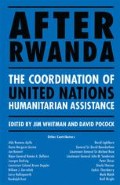Abstract
When the UN deployed into Bosnia in 1992, its mission was not classic peacekeeping where each party to the conflict invites the UN to act as a mediator — for neither party engaged in the war had demonstrated any intention of bringing about an end to the conflict. Indeed, it could be argued that the worst horrors of the war were still to come. Thus it simply was not possible for the UN Force to carry out the task of peacekeeping in a traditional manner; nor, initially, could it create the necessary confidence-building mechanisms by which the war could be brought to an end. All that would lie in the future. The United Nations Protection Force (UNPROFOR) was therefore deployed purely in order to help UNHCR and other aid agencies alleviate the terrible levels of human suffering which were the inescapable consequence of the ongoing war. This principal role inevitably shaped the entire structure and deployment of the Force. The second role of UNPROFOR, which came later under SCR 743/92, was to try to create those conditions necessary for a peaceful resolution of the conflict. However, under SCRs 824/93 and 836/93, UNPROFOR was required to apply unusually high levels of military force in order to deter attacks against six designated safe areas and to maintain the total exclusion zones for heavy weapons around Sarajevo and Gorazde. Since these enforcement measures were aimed mainly at the Bosnian Serb Army, who controlled much of the key military terrain in Bosnia, it can be seen that the two main roles of UNPROFOR were at variance with each other: humanitarian aid delivery and military enforcement backed by NATO jets do tend to lie uneasily together.
No language can describe adequately the condition of that large portion of the Balkan peninsula — Serbia, Bosnia, Hercegovina and other provinces — political intrigues, constant rivalries, a total absence of all public spirit ... hatred of all races, animosities of rival religions and absence of any controlling power ... nothing short of an army of 50 000 of the best troops would produce anything like order in these parts. (Disraeli, August 1878, in the House of Lords)
Access this chapter
Tax calculation will be finalised at checkout
Purchases are for personal use only
Preview
Unable to display preview. Download preview PDF.
Editor information
Editors and Affiliations
Copyright information
© 1996 Sir Michael Rose
About this chapter
Cite this chapter
Rose, M. (1996). Field Coordination of UN Humanitarian Assistance, Bosnia, 1994. In: Whitman, J., Pocock, D. (eds) After Rwanda. Palgrave Macmillan, London. https://doi.org/10.1007/978-1-349-24708-0_12
Download citation
DOI: https://doi.org/10.1007/978-1-349-24708-0_12
Publisher Name: Palgrave Macmillan, London
Print ISBN: 978-0-333-65852-9
Online ISBN: 978-1-349-24708-0
eBook Packages: Palgrave Political & Intern. Studies CollectionPolitical Science and International Studies (R0)

